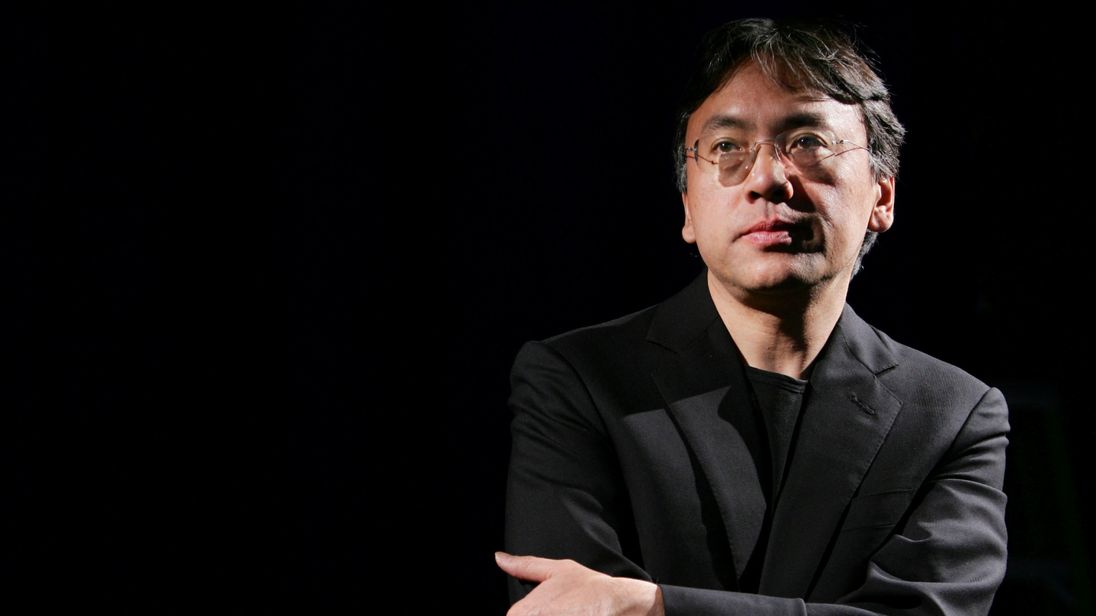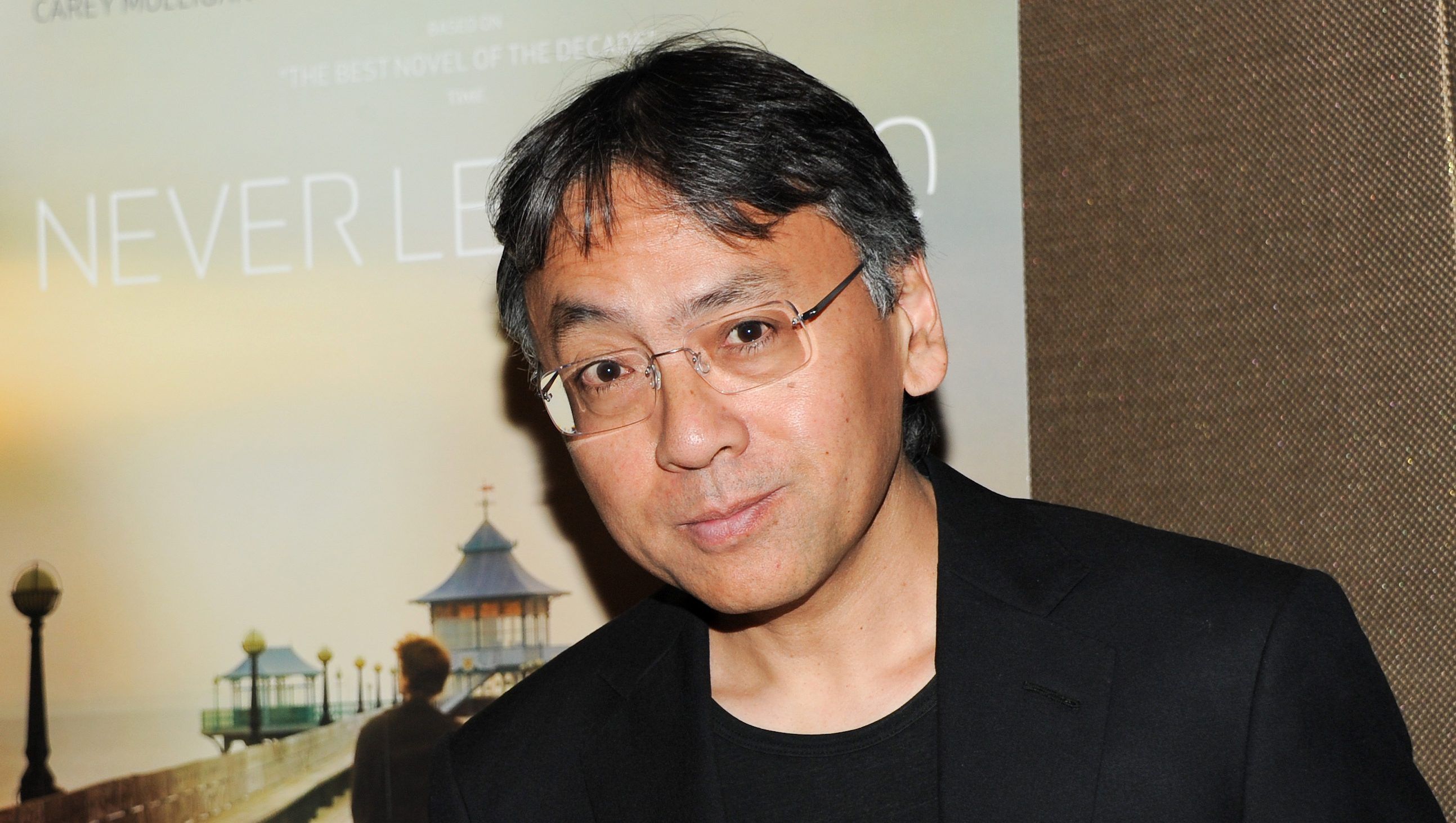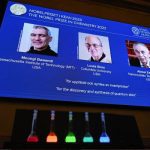 The British author of “Remains of the Day”, Kazuo Ishiguro has won the Nobel Prize for Literature, the Swedish Academy said on Thursday, honouring an “exquisite novelist” a year after giving it to singer-songwriter Bob Dylan.
The British author of “Remains of the Day”, Kazuo Ishiguro has won the Nobel Prize for Literature, the Swedish Academy said on Thursday, honouring an “exquisite novelist” a year after giving it to singer-songwriter Bob Dylan.
Born in Japan and raised in Britain, 62-year old Ishiguro, won the Man Booker Prize for the 1989 novel that was made into an Oscar-nominated movie starring Anthony Hopkins as a fastidious and repressed butler in postwar Britain.
Permanent secretary of the Swedish Academy, Sara Danius said if you mixed Jane Austen and Franz Kafka you would get Ishiguro in a nutshell.
The Academy hailed Ishiguro’s ability to reveal “the abyss beneath our illusory sense of connection with the world in novels of great emotional force” that touch on memory, time and self-delusion.
 The British author of “Remains of the Day”, Kazuo Ishiguro has won the Nobel Prize for Literature, the Swedish Academy said on Thursday, honouring an “exquisite novelist” a year after giving it to singer-songwriter Bob Dylan.
The British author of “Remains of the Day”, Kazuo Ishiguro has won the Nobel Prize for Literature, the Swedish Academy said on Thursday, honouring an “exquisite novelist” a year after giving it to singer-songwriter Bob Dylan.
Born in Japan and raised in Britain, 62-year old Ishiguro, won the Man Booker Prize for the 1989 novel that was made into an Oscar-nominated movie starring Anthony Hopkins as a fastidious and repressed butler in postwar Britain.
Permanent secretary of the Swedish Academy, Sara Danius said if you mixed Jane Austen and Franz Kafka you would get Ishiguro in a nutshell.
The Academy hailed Ishiguro’s ability to reveal “the abyss beneath our illusory sense of connection with the world in novels of great emotional force” that touch on memory, time and self-delusion.
 The British author of “Remains of the Day”, Kazuo Ishiguro has won the Nobel Prize for Literature, the Swedish Academy said on Thursday, honouring an “exquisite novelist” a year after giving it to singer-songwriter Bob Dylan.
The British author of “Remains of the Day”, Kazuo Ishiguro has won the Nobel Prize for Literature, the Swedish Academy said on Thursday, honouring an “exquisite novelist” a year after giving it to singer-songwriter Bob Dylan.
Born in Japan and raised in Britain, 62-year old Ishiguro, won the Man Booker Prize for the 1989 novel that was made into an Oscar-nominated movie starring Anthony Hopkins as a fastidious and repressed butler in postwar Britain.
Permanent secretary of the Swedish Academy, Sara Danius said if you mixed Jane Austen and Franz Kafka you would get Ishiguro in a nutshell.
The Academy hailed Ishiguro’s ability to reveal “the abyss beneath our illusory sense of connection with the world in novels of great emotional force” that touch on memory, time and self-delusion.
 The British author of “Remains of the Day”, Kazuo Ishiguro has won the Nobel Prize for Literature, the Swedish Academy said on Thursday, honouring an “exquisite novelist” a year after giving it to singer-songwriter Bob Dylan.
The British author of “Remains of the Day”, Kazuo Ishiguro has won the Nobel Prize for Literature, the Swedish Academy said on Thursday, honouring an “exquisite novelist” a year after giving it to singer-songwriter Bob Dylan.
Born in Japan and raised in Britain, 62-year old Ishiguro, won the Man Booker Prize for the 1989 novel that was made into an Oscar-nominated movie starring Anthony Hopkins as a fastidious and repressed butler in postwar Britain.
Permanent secretary of the Swedish Academy, Sara Danius said if you mixed Jane Austen and Franz Kafka you would get Ishiguro in a nutshell.
The Academy hailed Ishiguro’s ability to reveal “the abyss beneath our illusory sense of connection with the world in novels of great emotional force” that touch on memory, time and self-delusion.
 The British author of “Remains of the Day”, Kazuo Ishiguro has won the Nobel Prize for Literature, the Swedish Academy said on Thursday, honouring an “exquisite novelist” a year after giving it to singer-songwriter Bob Dylan.
The British author of “Remains of the Day”, Kazuo Ishiguro has won the Nobel Prize for Literature, the Swedish Academy said on Thursday, honouring an “exquisite novelist” a year after giving it to singer-songwriter Bob Dylan.
Born in Japan and raised in Britain, 62-year old Ishiguro, won the Man Booker Prize for the 1989 novel that was made into an Oscar-nominated movie starring Anthony Hopkins as a fastidious and repressed butler in postwar Britain.
Permanent secretary of the Swedish Academy, Sara Danius said if you mixed Jane Austen and Franz Kafka you would get Ishiguro in a nutshell.
The Academy hailed Ishiguro’s ability to reveal “the abyss beneath our illusory sense of connection with the world in novels of great emotional force” that touch on memory, time and self-delusion.
 The British author of “Remains of the Day”, Kazuo Ishiguro has won the Nobel Prize for Literature, the Swedish Academy said on Thursday, honouring an “exquisite novelist” a year after giving it to singer-songwriter Bob Dylan.
The British author of “Remains of the Day”, Kazuo Ishiguro has won the Nobel Prize for Literature, the Swedish Academy said on Thursday, honouring an “exquisite novelist” a year after giving it to singer-songwriter Bob Dylan.
Born in Japan and raised in Britain, 62-year old Ishiguro, won the Man Booker Prize for the 1989 novel that was made into an Oscar-nominated movie starring Anthony Hopkins as a fastidious and repressed butler in postwar Britain.
Permanent secretary of the Swedish Academy, Sara Danius said if you mixed Jane Austen and Franz Kafka you would get Ishiguro in a nutshell.
The Academy hailed Ishiguro’s ability to reveal “the abyss beneath our illusory sense of connection with the world in novels of great emotional force” that touch on memory, time and self-delusion.
 The British author of “Remains of the Day”, Kazuo Ishiguro has won the Nobel Prize for Literature, the Swedish Academy said on Thursday, honouring an “exquisite novelist” a year after giving it to singer-songwriter Bob Dylan.
The British author of “Remains of the Day”, Kazuo Ishiguro has won the Nobel Prize for Literature, the Swedish Academy said on Thursday, honouring an “exquisite novelist” a year after giving it to singer-songwriter Bob Dylan.
Born in Japan and raised in Britain, 62-year old Ishiguro, won the Man Booker Prize for the 1989 novel that was made into an Oscar-nominated movie starring Anthony Hopkins as a fastidious and repressed butler in postwar Britain.
Permanent secretary of the Swedish Academy, Sara Danius said if you mixed Jane Austen and Franz Kafka you would get Ishiguro in a nutshell.
The Academy hailed Ishiguro’s ability to reveal “the abyss beneath our illusory sense of connection with the world in novels of great emotional force” that touch on memory, time and self-delusion.
 The British author of “Remains of the Day”, Kazuo Ishiguro has won the Nobel Prize for Literature, the Swedish Academy said on Thursday, honouring an “exquisite novelist” a year after giving it to singer-songwriter Bob Dylan.
The British author of “Remains of the Day”, Kazuo Ishiguro has won the Nobel Prize for Literature, the Swedish Academy said on Thursday, honouring an “exquisite novelist” a year after giving it to singer-songwriter Bob Dylan.
Born in Japan and raised in Britain, 62-year old Ishiguro, won the Man Booker Prize for the 1989 novel that was made into an Oscar-nominated movie starring Anthony Hopkins as a fastidious and repressed butler in postwar Britain.
Permanent secretary of the Swedish Academy, Sara Danius said if you mixed Jane Austen and Franz Kafka you would get Ishiguro in a nutshell.
The Academy hailed Ishiguro’s ability to reveal “the abyss beneath our illusory sense of connection with the world in novels of great emotional force” that touch on memory, time and self-delusion.













